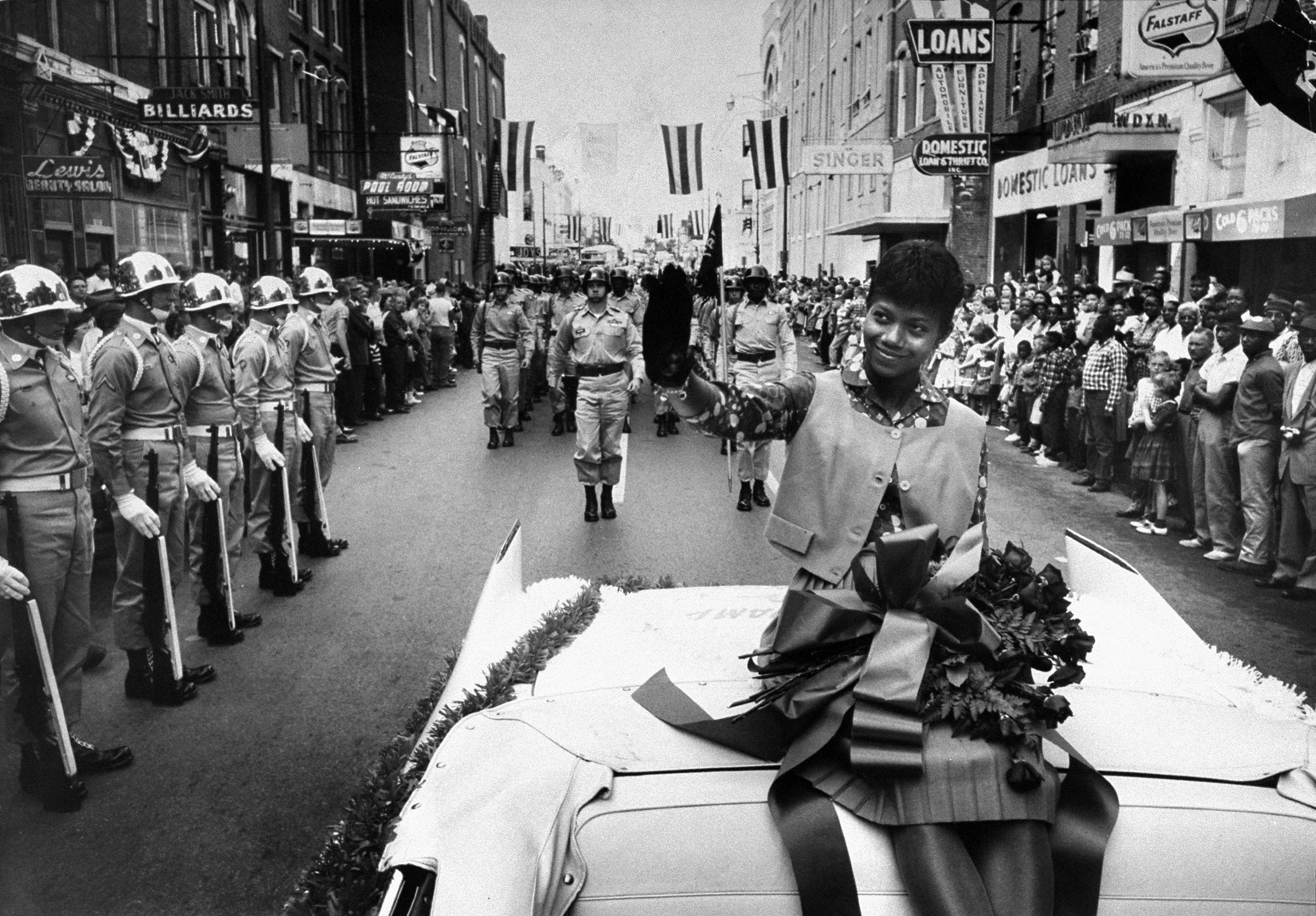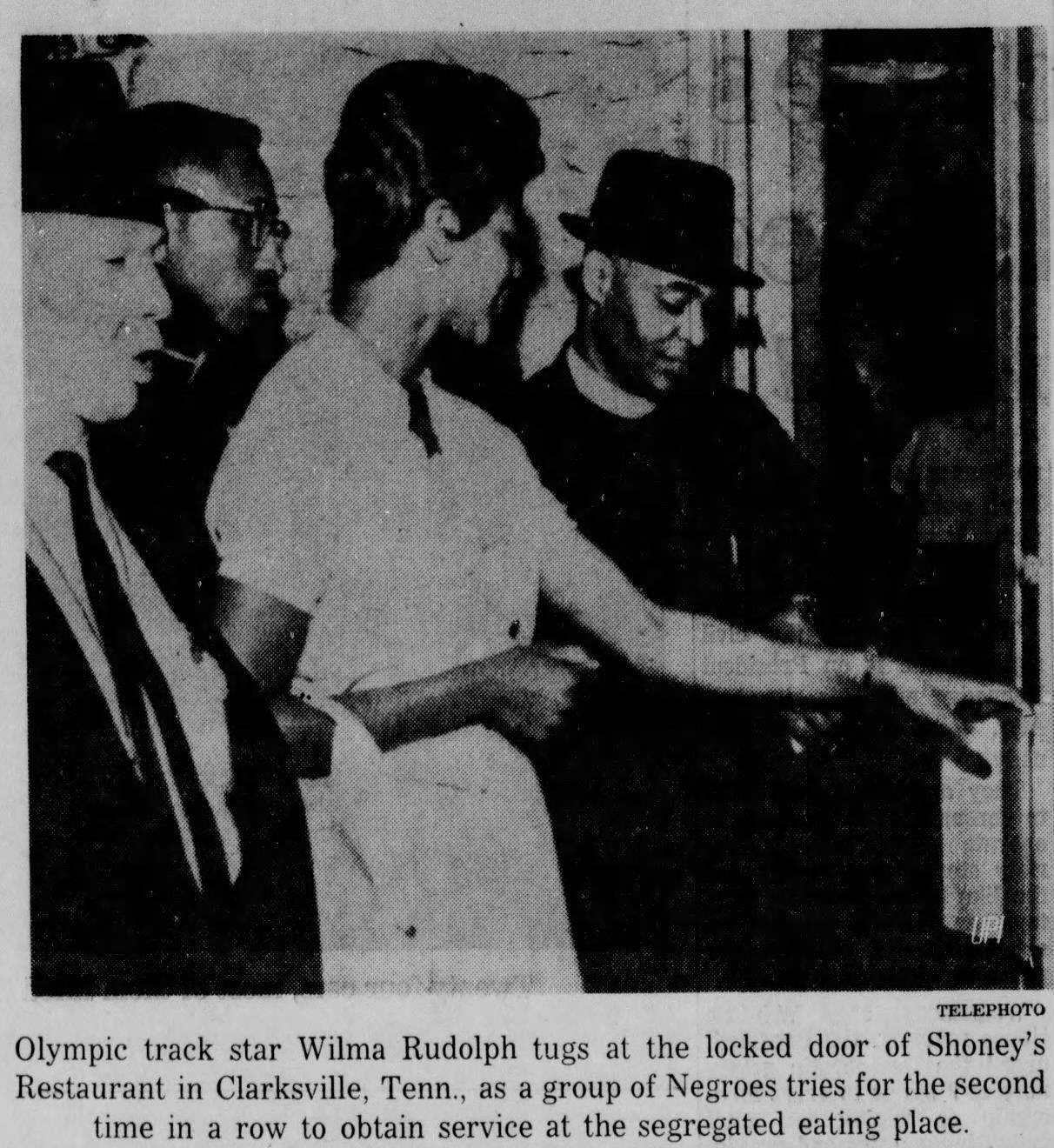
Wilma faced prejudice growing up in the segregated South. During her bouts of illness, she had to travel long journeys to see doctors that would treat black patients. When going to track meets, her team had to stay in different houses than white teams. Returning from the Olympics, she used her fame to stand up against segregation, refusing to attend a segregated celebration, so her homecoming parade and dinner were the first integrated events in Clarksville. Participating in a protest at a segregated restaurant, she helped to abolish segregation laws in Clarksville.
“She was one of the first African American athletes to use her celebrity to fight against injustice. Without question, Wilma Rudolph wasn’t the only one, but she was among a handful of African American women who really altered the way whites thought about race.”
- Excerpt from "(Re)Presenting Wilma Rudolph"

[Life Picture Collection, 1960]

[Clio, 1963]
"It was different in May of 1963, when Wilma took part in two demonstrations at Shoney’s, which is considered one of Clarkesville’s finest restaurants although it does not have much more to offer than hamburgers. She was turned away, together with the other Negroes. “I cannot believe it!: she said to a reporter. “Remember the reception they gave me in 1960?” A few months later Clarksville was integrated."
- Sports Illustrated, September 7, 1964